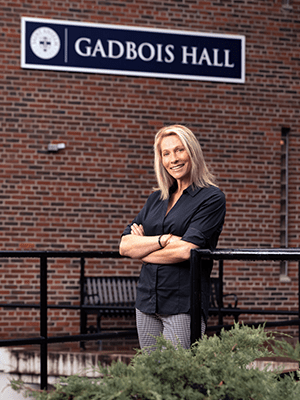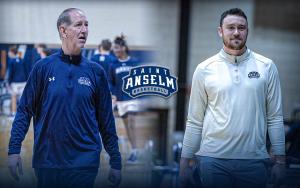The Abbatial Election has been suspended. Please read for more information.
Welcome to the Hilltop
Since 1889, Saint Anselm College has provided a transformative education shaped by Catholic and Benedictine values and a liberal arts foundation. Here, you are part of a welcoming community where you will discover your passions, experience cherished traditions, and unlock your full potential.
Top100.00100
national liberal arts college by Forbes
99.0099%
of identified graduates of the class of 2023 are either employed, pursuing further education, serving in the military, or volunteering
#24.0024
most engaged in community service by Princeton Review
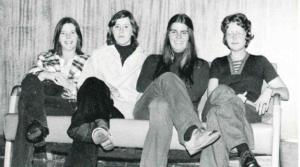
Celebrating 50 Years of Women’s Education
This year marks 50 years of women’s education and achievements at Saint Anselm College. To commemorate this extraordinary milestone, the college is celebrating with events and programs centered around the women of the past and present who have made Saint Anselm College what it is today.
Meet Our Anselmians

"I believe with all my heart that today’s world needs Saint Anselm College, a place that is infused with the Catholic and Benedictine values of community, hospitality and love, where the humanities, arts and sciences and professional programs like nursing, criminal justice and business build on our liberal arts core rather than compete with it. We need a place where you don’t have to choose between career outcomes and life outcomes. That place is Saint Anselm."
In the classroom and in the community, an Anselmian education will challenge you to find your best self.
Anselmian News
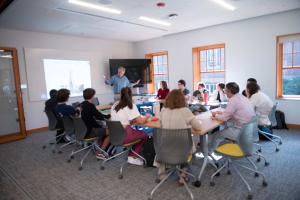
Interdisciplinary Special Topics Course is “Unlike Any Other”
Last fall, a new special topics course blended history and literature in a…
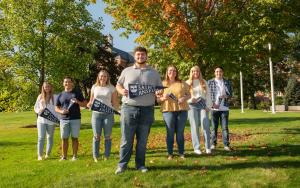
Anselmians Make Record Gifts to Support Saint Anselm College Now and Always
During the 10th annual Days of Giving campaign, the college a record $1.43…
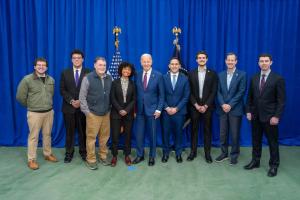
Saint Anselm students play role in President Biden’s NH visit
Students reflect on the important role they played in President Biden’s…


Women in Leadership: A Women’s 50th Celebration
Seven Saint Anselm alumnae prominent in the business world discussed…
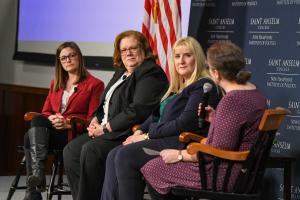
Women and Politics: NHIOP Celebrates 50 Years of Women’s Co-Education
Three notable women in the political field discussed the role of women in…

Chapel Arts Center Hosts a Retrospective on long-time Photography Professor
“The Intimacy of Seeing: Elsa Voelcker – A Retrospective,” the current…

Meelia Center's 32nd Annual Valentine's Dance Spreads Love and Inclusion in the Community
The Meelia Center for Community Engagement spread love in the community as…
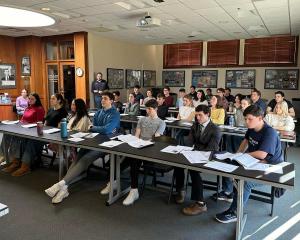
NHIOP Welcomes 2024 Cohort of Kevin B. Harrington Student Ambassadors
The New Hampshire Institute of Politics welcomes 29 new Student Ambassadors…
FEATURED FACULTY MEMBER
Theology Professor Ahida Pilarski, Ph.D. was featured in the most recent issue of Portraits Magazine's Focus on Faculty.
"The first program in women’s studies in the United States was approved at San Diego State University in 1970. Saint Anselm College also is celebrating the 50th anniversary of women at the college this year. It is nice to know that our college joined this major change of increasing the access of women to education."
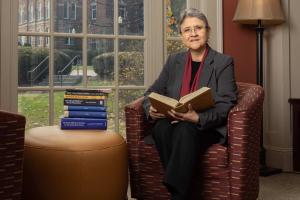
Anselmian Events

Topics that will be discussed include diagnosis, treatment, and care of the patient experiencing a stroke throughout the continuum of care.
Event details for Stroke Symposium: Connecting the Continuum of Care
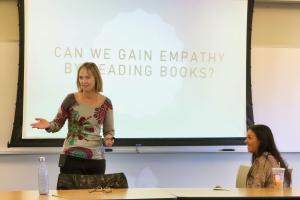
What is the meaning of work in our lives?
Prof. Kevin Doran, Sociology & Social Work Department

Concert in the Koonz Auditorium featuring students in music lessons.

Join us in adoration of the Eucharistic Lord with Exposition of the Blessed Sacrament!

Friday, May 3rd, 2024
SULLIVAN ARENA
ALL SALES ARE FINAL
NO REFUNDS OR EXCHANGES
VENUE POLICIES:
The following is a list of items and whether they are typically allowed into the venue or not. Sometimes a specific tour may require a different policy on certain items. Be sure to check for your specific event. All items that are allowed in are subject to a thorough search from our security team.
Bags or Purses? No, except for a small clutch purse with a maximum size of 6" x 9" or a clear tote with a maximum size of 12" Wide x 12" High x 6" Deep. Fanny-packs are also allowed.
Coolers? No.
Weapons? No.
Cameras? Yes but only non-professional without a detachable lens.
IPads? No.
Video Camera? No.
Selfie Sticks? No.
Drugs? No.
Medications? Yes, but only in the original prescription container with matching ID.
Pets? No.
Strollers? Yes, but are subject to search by security and we do not have stroller storage areas.
No tailgating in the parking lots
Arena doors Open at 6:00pm
All attendees will be required to go through security screening and pass through a metal detector
No backpacks or large bags/purses will be allowed. Small bags/purses or clutches will be permitted.
Guests should note if they choose to exit the facility for any reason, re-entry will not be permitted
No outside food or beverages are permitted
By entering the facility, all attendees agree to act appropriately and not disturb the program or guests.
Individuals who choose to act inappropriately or otherwise disturb the program will be escorted out of the building by law enforcement.
Should you require special accommodations, or more information about accessibility, please contact us at events@anselm.edu at least 48 hours in advance of the event.
All efforts will be made for reasonable accommodations.
By presenting this ticket, you agree to the rules and regulations of the facility and Saint Anselm College
*ALL SALES ARE FINAL
*NO REFUNDS OR EXCHANGES

Eight world class stunt dogs in a comedy show. Great family fun!
*ALL SALES ARE FINAL
*NO REFUNDS OR EXCHANGES





